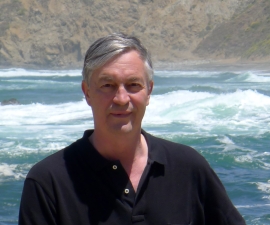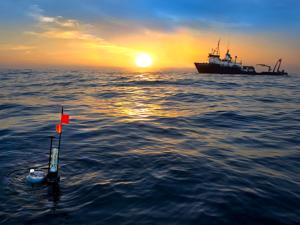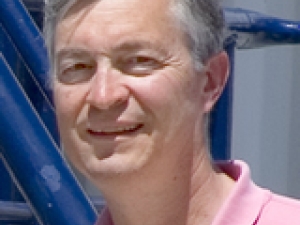

Research Bio
James Bishop is a professor of Marine Science in the Department of Earth and Planetary Science. At sea, his research group's main focus is to understand and thus gain predictive capability of how biological processes operate to transform and transport carbon in the sea. The very fast and dynamic carbon flows in the ocean, which govern atmospheric CO2, are substantial and there are open questions regarding the stability of these flows due to human induced warming and acidification of the ocean. Is the ocean biological carbon pump strengthening (good) or weakening (bad)? We just don't know. We need to find out. Given that photosynthetic organisms in the ocean live for a week, observations using ships have been limited. This is what motivates our development of autonomous ocean carbon observing sensors and robots. Our latest robot, the "Ocean Carbon Observer", will follow daily variations of particulate organic and inorganic carbon concentrations and fluxes to kilometer depths during missions lasting from seasons to years in the remote ocean. On land, we have applied ocean robotic methodology to enable high frequency observations of the chemistry of water as it transits the forest canopy and the unsaturated soils and fractured bedrock to form ground water on its way to the ocean.
Research Expertise and Interest
ocean carbon cycle dynamics, remote sensing, aquatic chemistry, marine biogeochemistry, land - ocean biogeochemistry, chemical oceanography, ocean sensors and autonomous observing systems, Carbon Explorer, Carbon Flux Explorer
In the News
Follow ocean-going robots, and their scientists, for 10 days at sea
What’s life like aboard a scientific research vessel plying the California coast deploying robots to unlock important data about climate change?
Eel River Observatory seeks clues to watershed’s future
University of California, Berkeley, scientists will receive $4,900,000 over the next five years to study the nearly 10,000 square kilometer Eel River watershed in Northern California and how its vegetation, geology and topography affect water flow all the way to the Pacific Ocean.
Bobbing for carbon
Marine plankton convert a huge portion of the carbon in seawater into seafood. Exactly how much of this biological carbon gets stored in the oceans has a tremendous impact on future climate scenarios. Jim Bishop, a Berkeley professor of earth and planetary science, has designed robots that can measure ocean carbon in all seasons and weathers—critical data for a warming world.



